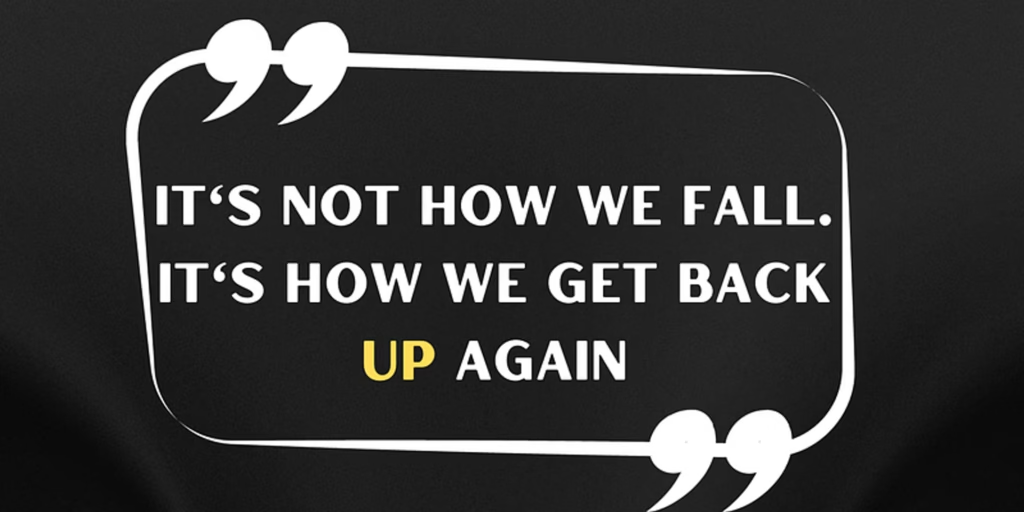Failure is an inevitable part of life, yet for many, it can feel like the end of the road. Whether it’s a career setback, a failed relationship, or an unfulfilled dream, disappointment can lead to deep emotional distress—even depression. However, some individuals refuse to let failure define them. Instead, they rise from their lowest points, transforming setbacks into comebacks. Their stories of resilience inspire and remind us that even in our darkest moments, hope and success are still possible.
The Power of Resilience: Turning Failure into Strength

Resilience is not just about surviving difficulties—it’s about using those struggles as a foundation for growth. Many people who have faced failure initially feel lost, but their ability to adapt and push forward sets them apart.
One such example is J.K. Rowling, who faced repeated rejections before finally publishing Harry Potter. At her lowest, she was a struggling single mother with no financial security. However, instead of giving up, she persevered, using her failures as motivation. Her story proves that resilience is a mindset—one that turns setbacks into stepping stones toward success.
Resilience is also about self-belief. Oprah Winfrey was fired from her first television job, told she wasn’t fit for the industry. But she didn’t let that setback define her. Instead, she worked harder and eventually became one of the most influential media personalities in history. Her story emphasizes that failure doesn’t mean you’re not good enough—it means you’re being redirected toward something greater.
Overcoming Depression After Failure: Lessons from Real People
Failure often leads to feelings of hopelessness, and for some, it triggers depression. However, overcoming this emotional turmoil is possible with the right mindset and support system.
Michael Phelps, the most decorated Olympian of all time, struggled with depression after experiencing setbacks in his career. He admitted to feeling lost and even contemplated giving up entirely. Through therapy and seeking help, he learned that success isn’t just about medals—it’s about mental well-being. His journey teaches us that acknowledging our struggles is the first step toward overcoming them.
Another inspiring story is that of Arianna Huffington. Before founding The Huffington Post, she faced rejection from publishers 36 times. The stress and self-doubt affected her deeply, but she channeled her frustration into persistence. Her ability to push through rejection led to one of the most successful media companies in the world. Her experience highlights the importance of perseverance and self-care in overcoming depression after failure.
Finding Purpose After a Major Setback

Sometimes, setbacks force us to reevaluate our paths, leading us to unexpected but fulfilling opportunities. Many individuals who have faced significant failures later discover their true purpose.
Steve Jobs, for example, was fired from Apple, the very company he founded. This devastating experience could have ended his career, but instead, he used it as an opportunity to explore new ideas. His journey led him back to Apple, where he revolutionized the tech industry. His story teaches us that sometimes, failure is a necessary redirection toward our true calling.
Similarly, Elizabeth Gilbert, author of Eat, Pray, Love, faced a personal and professional crisis before finding success. She describes her journey as one of self-discovery, where failure forced her to redefine what happiness and success meant. Her story encourages us to embrace uncertainty and trust that setbacks can lead to unexpected yet rewarding paths.
Strategies to Build Resilience and Move Forward
While stories of resilience inspire us, it’s also important to understand how to develop resilience in our own lives. Moving forward after disappointment requires conscious effort and the right mindset.
1. Accept Failure as a Learning Experience
Instead of seeing failure as a dead end, view it as a lesson. Many successful people failed multiple times before reaching their goals. Each setback offers valuable insights that help refine strategies for the future.
2. Seek Support from Others
No one has to overcome struggles alone. Talking to trusted friends, family, or a professional can provide new perspectives and emotional relief. Surrounding yourself with positive influences can help rebuild confidence.
3. Focus on Small Wins
Setting small, achievable goals helps rebuild momentum after failure. Every step forward, no matter how minor, reinforces resilience and builds confidence. Small successes pave the way for bigger accomplishments.
4. Practice Self-Compassion
Self-criticism often worsens depression after failure. Instead of dwelling on mistakes, practice self-kindness. Treat yourself with the same patience and understanding you would offer a friend going through a tough time.
5. Reframe the Narrative
Failure does not define you. Instead of labeling yourself as a failure, view yourself as someone in progress. Rewriting your story in a positive light can help shift your mindset from despair to determination.
Conclusion
Failure is painful, and it can lead to emotional struggles, but it is not the end of the journey. The stories of those who have faced setbacks and risen stronger show that resilience is a powerful force. By embracing failure as a stepping stone, seeking support, and maintaining a growth mindset, anyone can turn their disappointments into triumphs. Your comeback story is waiting to be written—how will you choose to rise?













